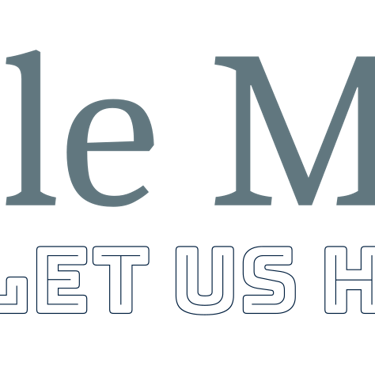Harnessing the Power of Meditation to Reduce Anxiety
Meditation is a powerful tool for reducing anxiety by calming the mind and fostering mindfulness, which helps individuals break free from negative thought patterns. Through regular practice, it promotes relaxation and emotional balance, leading to a more centered and less anxious state of being.
9/19/20245 min read


Understanding Anxiety and Its Impact
Anxiety is a common mental health disorder characterized by feelings of tension, worry, and physical changes such as increased blood pressure. It can manifest in various forms, each with its own specific symptoms and triggers. Generalized Anxiety Disorder (GAD) is marked by excessive, uncontrollable worry about everyday issues for an extended period. Individuals with GAD often struggle with a persistent sense of impending doom, which can significantly impair their daily functioning.
Another prevalent form is Social Anxiety Disorder, where individuals experience intense fear or anxiety in social situations. This fear can lead to avoidance of social interactions, further exacerbating feelings of loneliness and isolation. On the other hand, panic attacks are sudden episodes of intense fear that trigger severe physical reactions in the absence of real danger, creating a cycle of fear and avoidance in affected individuals. These panic episodes can be fleeting but extremely distressing, often leaving individuals in a state of heightened alertness.
Anxiety can stem from various sources, including genetic predispositions, brain chemistry imbalances, environmental factors, and life experiences. Stressful life events such as trauma, job loss, or the death of a loved one can act as catalysts for the onset of anxiety disorders. The impact of anxiety on daily life is profound, affecting personal relationships, work performance, and overall quality of life. Individuals grappling with anxiety may find themselves constantly preoccupied with their concerns, affecting their ability to focus and derive pleasure from activities.
In modern society, the prevalence of anxiety disorders is rising, which underscores the necessity for effective management strategies. Understanding the complexities and implications of anxiety is crucial for promoting awareness, reducing stigma, and encouraging those affected to seek assistance. With appropriate support and resources, individuals can harness tools such as meditation to regain control over their anxiety, fostering a path towards tranquility and emotional well-being.
The Role of Meditation in Mental Health
Meditation serves as a holistic approach to mental health, offering various benefits that promote well-being and alleviate anxiety. As a practice rooted in ancient traditions, meditation has gained recognition in modern psychology for its ability to influence both the brain and body positively. Engaging in regular meditation can lead to significant reductions in stress levels, ultimately enhancing overall mental health.
Research has demonstrated that meditation affects the brain's neuroplasticity, leading to changes in areas linked to emotion regulation, such as the amygdala and prefrontal cortex. This indicates that individuals who meditate regularly may experience heightened emotional resilience. The practice encourages a state of relaxation by activating the body's parasympathetic nervous system, which counteracts the stress response. Such physiological changes can help lower heart rates, decrease blood pressure, and promote a feeling of calmness, contributing to better mental health.
There are various types of meditation practices, each offering unique benefits. Mindfulness meditation involves focusing on the present moment, enhancing self-awareness and acceptance while reducing the tendency to ruminate on negative thoughts. Guided visualization, on the other hand, employs imagery to foster relaxation, allowing individuals to mentally escape from their anxieties and stressors. Transcendental meditation, characterized by repeating a mantra, facilitates a deep state of rest and has been associated with a decrease in anxiety symptoms.
Incorporating these practices into daily life is feasible and can lead to long-lasting improvements in mental health. Individuals can begin with just a few minutes each day, gradually increasing the duration as they become more comfortable with the techniques. By integrating meditation into one’s routine, individuals can harness its potential to cultivate a sense of inner peace, ultimately supporting their mental health and well-being.
Practical Techniques for Integrating Meditation into Daily Life
Integrating meditation into daily life can serve as a powerful tool for reducing anxiety. To begin, setting aside dedicated time for meditation is essential. Establishing a routine, whether in the morning, during lunch breaks, or before bed, helps to create consistency. Even a few minutes daily can yield significant benefits. Consider starting with five to ten minutes and gradually increasing the duration as comfort with the practice grows.
Moreover, creating a suitable environment is crucial for effective meditation. Identify a quiet space, free from distractions, and personalize it to enhance relaxation. This could involve soft lighting, comfortable seating, or the use of calming scents, such as essential oils or incense. The ambiance you cultivate will encourage a more profound and focused meditation experience. Choose a space that feels safe and conducive to your mindset, which can ultimately support anxiety reduction.
Utilizing meditation apps or guided resources can also facilitate the integration of this practice into your routine. Many applications provide a variety of guided sessions specifically designed for beginners or those seeking to address anxiety. These resources can offer structured guidance, helping users focus on specific techniques such as mindfulness or breathwork. Additionally, online platforms provide flexibility with varied lengths and styles of meditation, making it easier to find options that fit one’s lifestyle.
However, obstacles such as a busy schedule or difficulty in sustaining focus can impede meditation practices. To mitigate these challenges, consider engaging in short, frequent sessions rather than long ones. Adapting meditation practices to moments of stillness throughout your day can also prove effective. For instance, taking a few deep breaths before a meeting or while commuting can serve as a micro-meditation, fostering mindfulness amid a hectic day. By incorporating such techniques, individuals can harness the calming effects of meditation even within a demanding daily agenda.
Success Stories and Research Findings
Meditation has increasingly gained recognition as a viable method for managing anxiety. Numerous individuals have shared their personal experiences highlighting the positive effects of meditation on their mental health. One compelling case is that of a young professional who struggled with acute anxiety that severely impacted her daily life. After incorporating a regular meditation practice into her routine, she reported a marked decrease in anxiety symptoms, allowing her to perform better at work and improve her relationships. This narrative resonates with many who seek solace through mindfulness techniques.
Another inspiring story comes from a retired veteran who faced post-traumatic stress disorder (PTSD) and chronic anxiety. Through guided meditation and mindfulness exercises, he found considerable relief from intrusive thoughts and heightened emotional reactions. His success story underscores the transformative potential of meditation not merely as a therapeutic intervention but as a pathway to reclaiming control over one's emotional wellbeing.
Research findings also support the efficacy of meditation in reducing anxiety. A study published in the Journal of Anxiety, Stress & Coping demonstrated that participants who engaged in mindfulness meditation showed a significant reduction in anxiety levels compared to a control group. The research highlighted that consistent practice of meditation leads to alterations in brain activity associated with emotional regulation, reinforcing its relevance in mental health strategies.
Furthermore, a comprehensive review of multiple studies in the Psychological Bulletin found that mindfulness meditation can improve anxiety-related symptoms across various populations, including students and individuals with clinical anxiety disorders. The accumulated evidence showcases meditation's role as an empowering tool for many individuals seeking a natural method to manage anxiety, thereby bolstering the credibility of meditation as a key element in modern mental health care.



